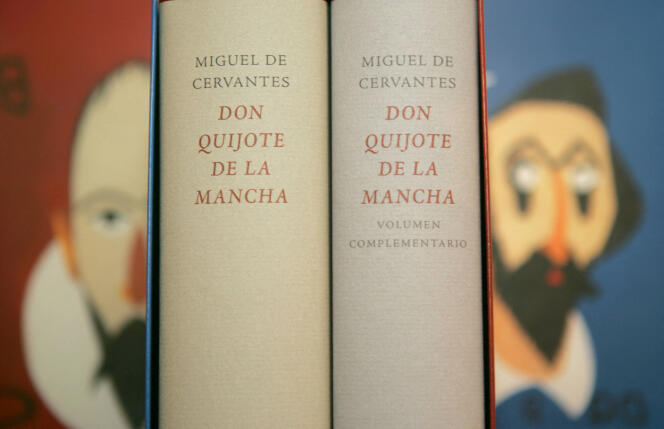
France Culture – From May 31 to June 3 at 5 p.m. – Documentary series
It is the story of a story. Of a story almost as old as the world, since it is that of the novel that Kristel Le Pollotec has chosen to tell us. And it took four episodes of an hour (the box “LSD” of France Culture) to embrace part of this odyssey – from Don Quixote, published in 1605 and considered the first modern novel, until Synthetic core, by Chloé Delaume (Threshold, 2020, Prix Médicis).
The first episode transports us to Victorian England, in the company of the Brontë sisters, Jane Austen and George Eliot. At the time, recalls Anglicist Jean Viviès, the novel was far from being a prestigious genre. On this side of the Channel, Balzac publishes his Human comedy serialized.
In XXe century (episode 2), novelists had to face two pitfalls: on the one hand Marcel Proust and his Search for lost time, horizon difficult to pass, on the other hand Roland Barthes, who signed, in 1968, Death of the author (an essay published in the American magazine Aspen). Death, the novel? Especially since it took the name of “New”, with the publication, by Editions de Minuit, of books by Alain Robbe-Grillet, Nathalie Sarraute, Claude Simon among others? Literary critic Tiphaine Samoyault, author of a biography of Roland Barthes, sheds light on this episode.
“A taste for reality”
In the following, it is the place of reality in literature that is questioned, since In cold blood, in 1966, an account of a quadruple murder for the writing of which Truman Capote went to interview the culprits in their prison. Writing at the time for The new observer on the Jean-Claude Romand affair, Emmanuel Carrère abandoned the novel for the story (The Adversary, Other lives than mine), like other renowned writers, from Annie Ernaux to Chloé Delaume.
So, novel or story? Fiction or « non-fiction novel », as the Anglo-Saxons say? And besides, who and what to believe when, as Serge Doubrovsky, creator and theorist of autofiction, said, “Even if we want to tell the truth, we write false, we read false”. Exciting episode, in which the editor Juliette Joste – who notably published The consent, by Vanessa Springora (Grasset, 2020) – confirms that there is indeed, today, “A taste for reality which is more and more clear”.
Which leads us to episode 4 devoted to bestsellers. In France, the publisher Hachette (founded in 1826) will play a key role, by slashing prices (by fifteen!) And by setting up points of sale in stations. Very quickly, the success of its “Libraries”, from the “Rose” to the “Green”, is at the rendezvous, even if the figures have nothing yet to do with those of a JK Rowling and its Harry Potter or novels by Marc Levy, here interviewed.
If the success in the homeland of Flaubert, Zola and Victor Hugo remains subject to debate, one thing seems certain: out of the mythology of the great writer who was built under the IIIe Republic, the author has an increasingly direct relationship with his readership, even going so far as to expose his life, his joys and his cats on the networks. And, sometimes, like a Cécile Coulon, author ofA beast in paradise (The Iconoclast, 2019), “test” some of his writings. To see the number of followers on Facebook (26,000) of the young writer, we say to ourselves – and it is fortunate – that the novel is far from being dead!
Once upon a time in the novel, documentary series by Kristel Le Pollotec, directed by Nathalie Battus (Fr., 2021, 4 × 60 min). On demand on the France Culture application and on that of Radio France.
–


